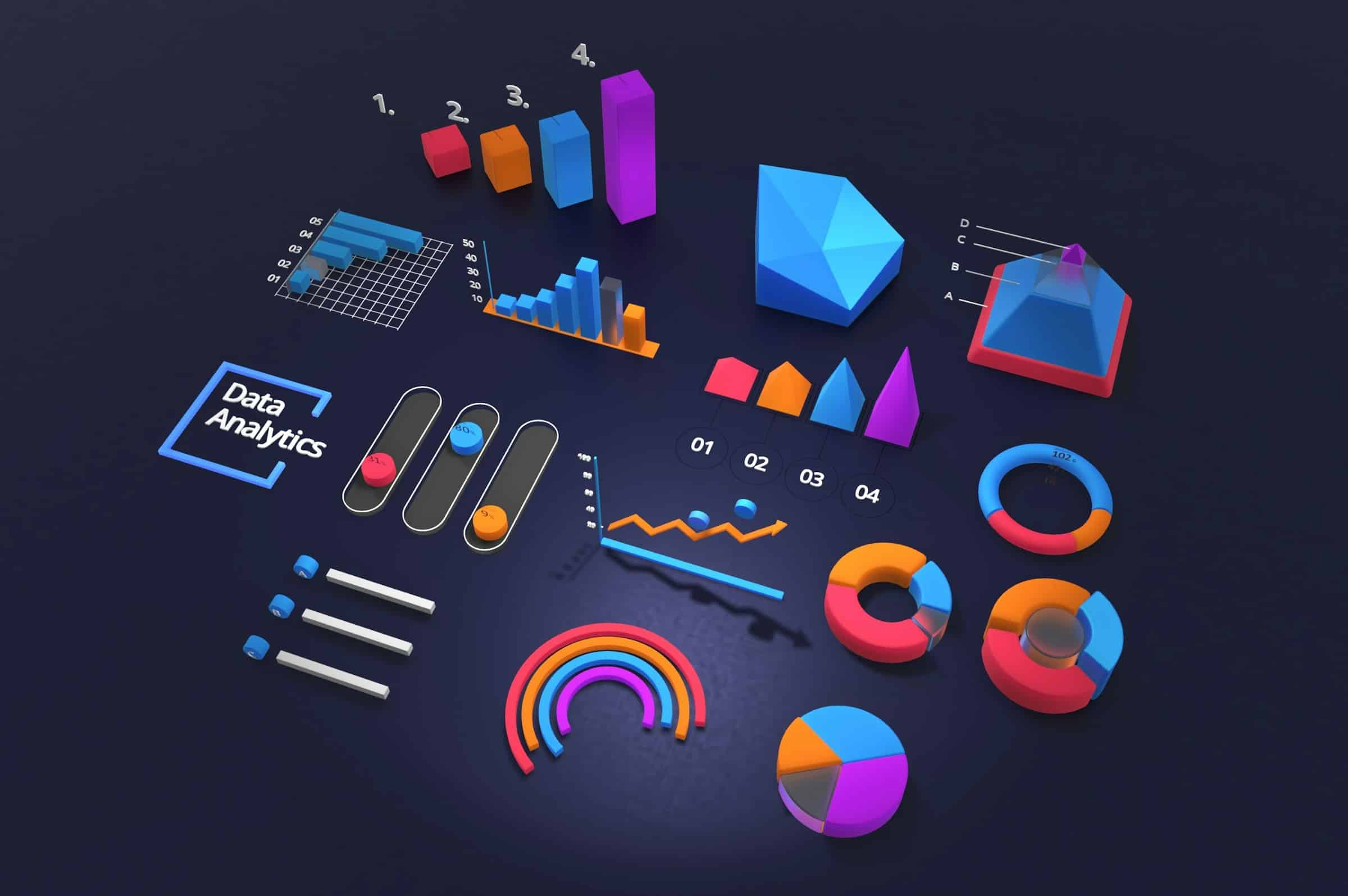What Are the New Trends in AI for UK Retail Analytics?

The modern retail landscape is a fiercely competitive arena. As you strive to stay relevant in this fast-paced industry, understanding the latest trends and leveraging the most effective tools can provide you with a significant edge. One such tool that is revolutionising the way retailers operate is Artificial Intelligence (AI). AI is reshaping the retail realm, particularly in the field of analytics. In the UK, retailers are increasingly harnessing AI's capabilities to gather and analyse data, optimise customer experiences, enhance their market share, and drive business growth. Here, we delve into the new trends in AI for UK retail analytics and how these trends can transform your business.
AI-Powered Predictive Analytics
Predictive analytics is not a new concept in the retail industry. However, the integration of AI with this analytical technique is a trend that is redefining the way businesses anticipate customer behaviours and market movements.
A lire également : How Can AI-Driven Predictive Maintenance Transform Fleet Management for UK Logistics Companies?
AI-powered predictive analytics platforms can process vast quantities of data at lightning speed, extracting insights that can help you forecast future demand accurately. These systems can analyse past sales data, identify patterns and trends, and predict future consumer behaviour. This allows you to optimise your inventory management, reduce waste, and meet customer expectations effectively.
AI can also help predict customer purchasing behaviour. With these insights, you can tailor your marketing efforts to the individual needs of your customers, enhancing the shopping experience and boosting customer loyalty.
Cela peut vous intéresser : What Are the Latest Developments in Quantum Computing for Drug Discovery in UK Pharmaceutical Firms?
AI and Customer Experience Enhancement
The customer experience is at the heart of the retail industry. Today, retailers are leveraging AI to deliver personalised, engaging experiences that keep customers coming back.
AI can analyse customer data to gain insights into individual preferences and shopping habits. This information can be used to personalise recommendations, tailor marketing messages, and enhance in-store experiences. By delivering personalised content, you're more likely to engage your customers, increase sales, and boost your market share.
AI can also improve the in-store experience. For example, smart mirrors equipped with AI can offer product recommendations based on the customer’s appearance and preferences. This not only elevates the shopping experience but also drives customer engagement and loyalty.
Real-time Analytics with AI
Real-time analytics is another trend in AI for retail analytics. This technology provides real-time insights into customer behaviour, allowing you to respond to changes in demand promptly.
AI-enabled real-time analytics can monitor various data points, such as customer footfall in your physical store, customer activity on your e-commerce platform, social media mentions, and more. This real-time data can provide you with actionable insights, enabling you to make swift decisions that could significantly impact your business growth.
For example, if your real-time analytics solution detects a sudden surge in demand for a particular product, you can quickly adjust your inventory levels to meet this demand. Similarly, if a negative review on social media is quickly identified, you can address the issue promptly, maintaining your brand's reputation.
AI and Competitive Intelligence
AI is also playing a pivotal role in competitive intelligence in the retail industry. Retailers are using AI to gather and analyse data about their competitors, helping them stay ahead in the market.
AI can scour the web for information about your competitors’ products, prices, promotional strategies, customer reviews, and more. By analysing this data, AI can provide you with insights into your competitors' strategies, strengths, and weaknesses. This can inform your own strategic planning, helping you to outperform your competition and increase your market share.
Moreover, AI can monitor changes in your competitors’ strategies in real time, alerting you to any significant shifts in the market. This enables you to respond quickly and strategically, maintaining your competitive edge.
AI in Supply Chain Management
The last but not least trend is the application of AI in supply chain management. In the UK retail industry, AI is being used to optimise various aspects of the supply chain, from inventory management to logistics.
AI can analyse historical sales data, predict future demand, and optimise inventory levels accordingly. This can significantly reduce carrying costs, minimise stockouts and overstocks, and improve customer satisfaction.
Additionally, AI can optimise logistics by predicting the optimal routes for product delivery, considering factors such as traffic patterns, weather conditions, and vehicle capacity. This can reduce delivery times, lower transportation costs, and improve service levels.
In essence, AI is transforming supply chain management, enabling retailers to operate more efficiently and effectively. As a result, they can deliver better value to their customers, enhance their competitive position, and drive business growth.
As you navigate the dynamic retail landscape, staying abreast of these trends in AI for retail analytics can help you enhance your competitive edge, grow your business, and deliver exceptional value to your customers. From predictive analytics to personalised customer experiences, real-time insights, competitive intelligence, and supply chain optimisation, AI is reshaping the retail industry in the UK and beyond. Make sure you are leveraging these trends to drive your business forward.
AI in Customer Service
With the growing business emphasis on enhancing the customer experience, AI is increasingly being used in the retail sector to improve customer service. A positive customer service experience can greatly influence a customer's perception of a brand and significantly impact the retailer's market share.
In the UK, many retailers are integrating chatbots and voice assistants into their customer service platforms. AI-powered chatbots can instantly respond to customer queries, resolve issues, and offer personalised product recommendations. They can operate 24/7, providing prompt and consistent assistance to customers across various channels.
Voice assistants, on the other hand, use natural language processing and machine learning to understand customer requests and provide information or perform tasks. They can offer a more human-like interaction, making the shopping experience more enjoyable and convenient.
Moreover, AI can be used to analyse customer feedback and reviews in real time. By identifying common pain points, AI can provide retailers with insights on areas that need improvement, helping them enhance their customer service and overall customer experience.
Through leveraging AI, retailers can significantly improve their customer service, fostering customer loyalty and boosting their market share.
Growth of AI in the UK Retail Market
AI is experiencing significant growth within the UK retail market, and this trend is expected to continue into the forecast period. According to a recent report, the AI in retail market size in the UK is expected to reach USD 15 billion by 2026, growing at a CAGR of 34%.
This growth is driven by the increasing adoption of AI in various areas of the retail industry, including predictive analytics, customer experience enhancement, real-time analytics, competitive intelligence, and supply chain management.
The ability of AI to process big data and generate actionable insights is helping retailers in the UK to optimise their operations, enhance customer satisfaction, and increase their market share. Moreover, the integration of machine learning technologies is enabling retailers to continually improve their AI systems, further driving the growth of AI in the retail sector.
Despite the challenges associated with the implementation and cost of AI, the potential benefits that AI offers for the retail industry are substantial. As retailers in the UK continue to leverage AI, the market size for AI in the retail sector is expected to see significant growth.
It is clear that AI is revolutionising the retail industry in the United Kingdom and beyond. From predictive analytics to customer experience enhancement, real-time insights, competitive intelligence, and supply chain optimisation, AI offers a plethora of benefits for retailers.
As AI technology continues to evolve and improve, it is likely that its adoption within the retail sector will continue to grow. The ability of AI to process big data and generate actionable insights in real time makes it a vital tool for any retailer looking to stay competitive in the fast-paced retail landscape.
Retailers who embrace the use of AI and keep themselves abreast of the latest trends will be well positioned to capitalise on the opportunities that AI presents. As a result, they can enhance their market share, optimise their operations, and deliver exceptional value to their customers, driving their business growth in the forecast period and beyond.
In conclusion, AI is more than just a trend - it's a game-changing tool that is redefining the retail industry. Retailers who are able to harness the power of AI will be the ones who stand out in this highly competitive market.
